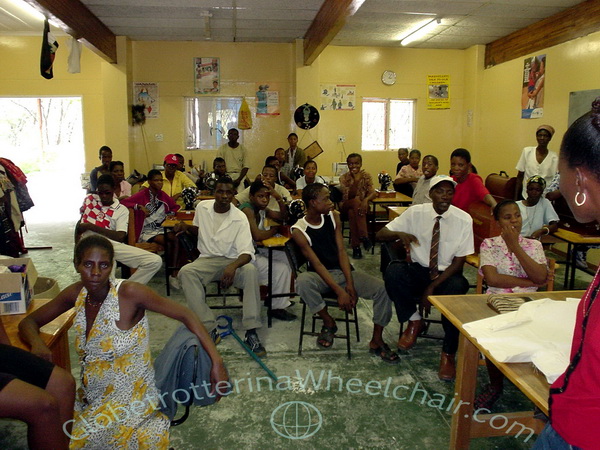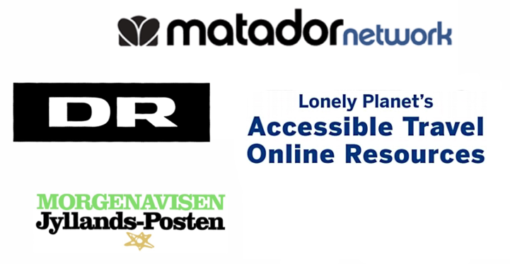UN International Day of Persons with Disability
Today is The UN International Day of Persons with Disability and I really appreciate UN is doing a great job to mobilize the importance of respect and dignity to people with a handicap.
It IS needed.
In poorer countries where the opportunities are less, and quite often there is a lack of understanding of the importance of integration of people with handicaps.
At the UN homepage you can read the following:
The annual observance of the International Day of Disabled Persons was proclaimed in 1992, by the United Nations General Assembly resolution 47/3. The observance of the Day aims to promote an understanding of disability issues and mobilize support for the dignity, rights and well-being of persons with disabilities. It also seeks to increase awareness of gains to be derived from the integration of persons with disabilities in every aspect of political, social, economic and cultural life.
Over one billion people, or approximately 15 per cent of the world’s population, live with some form of disability.
Persons with disabilities, “the world’s largest minority”, often face barriers to participation in all aspects of society. Barriers can take a variety of forms, including those relating to the physical environment or to information and communications technology (ICT), or those resulting from legislation or policy, or from societal attitudes or discrimination. The result is that persons with disabilities do not have equal access to society or services, including education, employment, health care, transportation, political participation or justice.
Persons with disabilities encounter many disadvantages in their societies and are often subjected to stigma and discrimination. They remain largely marginalized, disproportionately poorer, frequently unemployed and have higher rates of mortality. Furthermore, they are largely excluded from civil and political processes and are overwhelmingly voiceless in matters that affect them and their society.
Evidence and experience shows that when barriers to their inclusion are removed and persons with disabilities are empowered to participate fully in societal life, their entire community benefits. Barriers faced by persons with disabilities are, therefore, a detriment to society as a whole, and accessibility is necessary to achieve progress and development for all.
The Convention on the Rights of Persons with Disabilities (CRPD) recognizes that
the existence of barriers constitutes a central component of disability. Under the Convention, disability is an evolving concept that “results from the interaction between persons with impairments and attitudinal and environmental barriers that hinder their full and effective participation in society on an equal basis with others.”Accessibility and inclusion of persons with disabilities are fundamental rights recognized by the CRPD and are not only objectives, but also pre-requisites for the enjoyment of other rights. The CRPD (Article 9, accessibility) seeks to enable persons with disabilities to live independently and participate fully in all aspects of life and development. It calls upon States Parties to take appropriate measures to ensure that persons with disabilities have access to all aspects of society, on an equal basis with others, as well as to identify and eliminate obstacles and barriers to accessibility.
In spite of this, in many parts of the world today, lack of awareness and understanding of accessibility as a cross-cutting development issue remains an obstacle to the achievement of progress and development through the Millennium Development Goals, as well as other internationally agreed outcomes for all.
When I travel I often go to schools, organisations, institutions etc to tell them, and yes I try with lectures to educate people the importance of  the respect for one another and the importance of respect for self, despite of a handicap. And the lack of self respect is sadly something I meet quite a lot. In a lot of societies it is quite normal that people with a handicap is tucked away because it brings shame to the family. This is something I try to change and it is something that SHOULD change.
the respect for one another and the importance of respect for self, despite of a handicap. And the lack of self respect is sadly something I meet quite a lot. In a lot of societies it is quite normal that people with a handicap is tucked away because it brings shame to the family. This is something I try to change and it is something that SHOULD change.
This reinforces the fact that at times it is the so called normal people who makes me more ‘disabled’ or not capable that I really am.
The minute I “walk” outside my door the first people see is my wheelchair not me. The sight of the wheelchair gives automatically people an opinion of who I am. And this is not strange because normally we use the first few moments to define each other by the looks, and my obvious feature is my wheelchair. There is nothing wrong with us defining people by the looks. It is the only way our brain can cope with all the information we get every single day. The problem is how we define a person with a handicap. I think we need to change that mindset.
We need to look at each other with respect! And we need to forget the stereotype way of thinking. Let’s hope The International Day of Persons with Disability can help us all do that!

 Kirsten is a Danish traveler, storyteller, pocket philosopher and artist. She has been traveling on and off for the past 25 years+. She likes to combine her interest for art and nature with her journeys worldwide, and is always up for a good conversation.
You can also find Kirsten @
Kirsten is a Danish traveler, storyteller, pocket philosopher and artist. She has been traveling on and off for the past 25 years+. She likes to combine her interest for art and nature with her journeys worldwide, and is always up for a good conversation.
You can also find Kirsten @ 

